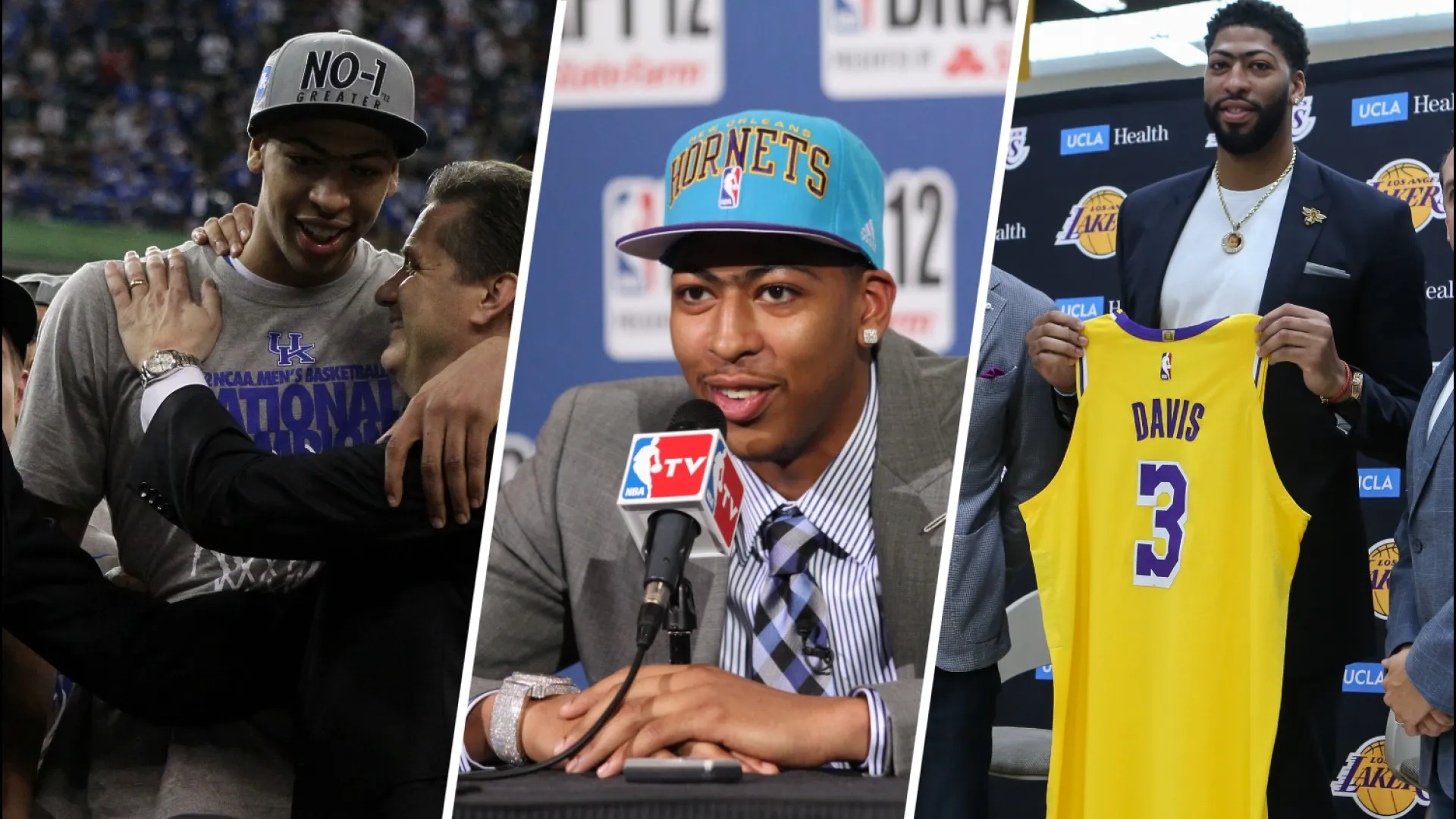
This is the way it is in the often seamy and corruptible world of high school and college basketball.
It was a day like any other day when the telephone rang in the office of the chief administrator of a high school in Illinois.
The callers were the school's star basketball player, his father, his AAU coach and a coach representing a major Division I program.
Stay in the game with the latest updates on your beloved Chicago sports teams! Sign up here for our All Access Daily newsletter.
The athlete was struggling academically, seriously and negatively affecting his opportunity to qualify for a college scholarship, and it was broadly if not directly hinted that if the youngster's grades were changed for the positive, he would transfer to another school.
"We wouldn't do it," the administrator said. "So he transferred. It wasn't proper."
But a big-time college will welcome a big-time recruit, no more questions asked. And the AAU coach will deliver the player, just as he promised he would. All neatly tied in a bow, like a Christmas present.
Prep schools have become a cottage industry in this country. Call them "basketball factories." Oak Hill or Fendlay or Bishop Gorman or La Lumiere or Brehm or Laurinburg or Winchendon or Maine Central or Miller Grove or Brewster or Prestwood or Fork Union or South Kent or Hargrave.
A few years ago, investigations by the Washington Times and New York Times forced the NCAA to make rule changes that helped to close many so-called diploma mills. Remember Chicago's controversial Boys to Men Academy?
Under the new academic guidelines, it supposedly is more difficult for incoming athletes to put their books aside to concentrate solely on playing on organized all-star teams that travel from coast to coast and gain exposure to the leading Division I programs.
Today, athletes are required to earn at least 15 of their 16 core courses during high school before a fifth year is permitted at a prep school, thus eliminating the chances for a sham operation to skirt the rules.
Sounds good. But is it too good to be true? Is P.T. Barnum still selling his wares to unsuspecting high school athletes? Or is that what they really want, a short trip down the educational path that will lead to the NBA?
"It depends on the school," said longtime recruiting analyst Van Coleman of Hot100Hoops.com. "Most of the well-established prep schools in the Northeast and in Virginia who belong to the NEPSAC (New England Preparatory School Athletic Council) are legitimate schools, as are some of the well-established schools like Montverde.
"But there are a number of pop-up prep schools that are nothing but athletic or basketball factories. Some are online-only classroom schools. There definitely is a major potential for academic fraud.
"Unfortunately, you have to take them on a one-by-one basis to establish who is or who isn't a legitimate school. Overall, the prep school is a useful tool for seniors who come up just short academically, needing one course or time to pass a test. But they can be a real pain in the behind to legitimate schools if used to coerce or blackmail schools to give grades."
Coleman is familiar with cases where a school refused to change an athlete's grades so he transferred to another school that was more than willing to do whatever was necessary to ensure his eligibility and ability to qualify for a college scholarship.
"For a senior to go to a prep school and make up two flunked courses would take two years, as I'm not sure the NCAA allows more than one core per year if you transfer at the start of the senior season," Coleman said.
"Prep schools serve a purpose for fifth-year players in needs of short termlimited academic help to be eligible. As far as the four-year schools, some have their purpose. But, in many cases, they are just basketball factories. Each one has to be looked at based on their overall program. A number of them, like Oak Hill, have helped players to achieve academic qualification."
The growth and need for the one-year prep school outlet to qualify academically stemmed from the NCAA's refusal to allow junior college players in good standing to transfer after their first year of competition, thus opening up a can of worms that many prep schools have become.
In fact, for some unexplained reason, the NCAA is looking to make it even tougher for athletes to transfer from junior college to a four-year school. So prep schools could become an even more significant beneficiary as more players seek short-term academic relief.
Many of these teams are flat-out all-star teams. For example, highly rated Fendlay Prep of Henderson, Nevada, which defeated Simeon, the nation's top-ranked high school team, by a 75-50 margin in a nationally televised game, has no players from Nevada. But its roster includes recruits from Italy, Nigeria, Australia, Canada, Croatia, Denmark, Arizona, California and Oregon.
"Rather than traditional high school teams composed of athletes from the local community, an unfortunate variation on that theme is making its presence felt in ever-increasing numbers," noted a recent article in the National High School Federation's magazine. "In the process, (they are) making a mockery of the game."
According to the NFHS, non-member, basketball-focused schools are popping up across the nation and with greater frequency. The NFHS claims they aren't education or community-based but are merely basketball factories that exist for the sole purpose of creating powerhouse teams.
"Academics have taken a backseat to excellence on the basketball court at many of these institutions, as they are not bound by the rules and regulations observed by member schools. As a result, the star 7-foot center might be failing in the classroom but shining on the court with no penalty for his academic deficiencies," the NFHS article said.
"Where does education figure into this equation? What happened to the time-honored notion of representing your hometown and high school by wearing your uniform and school colors with great pride? What happened to playing your longtime conference rival? What happened to competing for that elusive state title? And what happened to the high school experience."
Not surprisingly, Marty Hickman, executive director of the Illinois High School Association, isn't a big fan of prep schools. Fortunately, he points out, the only prep school of note in Illinois is Brehm Academy in Carbondale. Decatur Christian tried to join the elite crowd but finally opted to join the IHSA.
Hickman and other high school administrators argue that prep schools almost exclusively cater to elite basketball players and sell them a bill of goods in the form of unrealistic expectations. "It is disheartening because they don't prepare kids for anything else," he said.
"We need to continue to focus on providing good interscholastic experiences for kids. It is frustrating in other states, too, and the problem is rising in soccer. Some elite soccer players are being forced by their club programs to play only competitive club soccer and skip the high school season."


